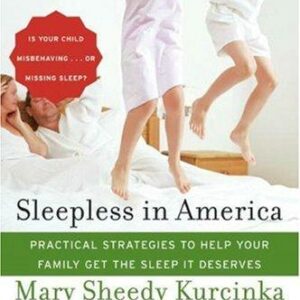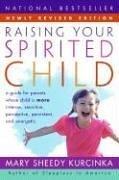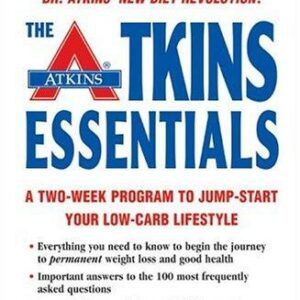ScreamFree Parenting
$14.99
| Title | Range | Discount |
|---|---|---|
| Trade Discount | 5 + | 25% |
- Description
- Additional information
Description
Parents are facing the toughest challenge of their lives. They want to create a loving family environment filled with mutual respect and cooperation… but they find instead that human nature and the influence of our culture combine to produce an atmosphere of anxiety, exhaustion, and far too much screaming. Perhaps you can relate!
Whether you scream at your children or not, you no doubt feel anxious about them and their choices. You worry how they’ll turn out. Unfortunately for parents, many of the techniques some experts present only seem to make matters worse. Hal Edward Runkel has discovered why: Parents are spending far too much time orbiting their lives around their children. They need to return the focus to themselves. They need to grow up and calm down.
ScreamFree Parenting is about taming your reactive responses to your deep anxiety. Rather than learning new techniques, you’ll discover the liberating principles, based on scriptural truths, that are inspiring parents just like you to revolutionize their family life. Principles that will enable you to remain cool, calm, and connected with your children, no matter what.
Learn how to parent less out of your deepest fears and more out of the highest principles in ScreamFree Parenting.
Special edition distributed through Christian booksellers.Hal Edward Runkel is a licensed marriage and family therapist, relationship coach, seminar speaker, and organizational consultant. As founding principal of ScreamFree Living, Inc., Hal presents ScreamFree programs to audiences nationwide and appears frequently in the media. He has earned a master’s in theological studies, as well as a master’s in marriage and family therapy from Abilene Christian University. Hal and his wife, Jenny, live with their two children in the Atlanta area. More resources are available at www.ScreamFree.com.Chapter One: Parenting Is Not About Kids, It’s About Parents
It’s not you, it’s me.
–George Costanza, Seinfeld
The greatest thing you can do for your kids is learn to focus on yourself.
That statement might not make complete sense right now. It might, in fact, seem downright offensive. What? Turn the focus away from my children and onto myself? Isn’t that against all the rules?
No, it isn’t. I’m not proposing that you put your children last on the list. Far from it. What I am saying is that by focusing on yourself, you will have a healthier, happier relationship with your whole family.
You see, most of us have been operating with a faulty model of how to live in our relationships. That’s not to say our relationships are all faulty, but the model sure is. We’ve been operating with a model that says in order to have healthy relationships, we need to focus on meeting other people’s needs, trying to serve them and make them happy.
To even question such a model draws controversy, I know, but stay with me. By focusing on yourself, you will have a healthier, happier relationship with your whole family.
This book is going to talk about why this model is so faulty, particularly in our parent-child relationships. For now, there are a few simple things we should consider. First, it’s a given that there are things in this world we can control and things we cannot control. Now ask yourself this question: How smart is it to focus your energy on something you can’t do anything about, something you cannot control?
Answer: Not very.
Follow-up question: Which category do your kids fall into? In other words, are your children something you can control or something you cannot control? Here’s an even tougher question: Even if you could control your kids, should you? Is that what parenting is all about? And what if it’s not the kids who are out of control?
A fundamental assertion of this book is that God wants us to parent our children the way he parents us. Think about how he relates to you. Does he constantly hover around you trying to make you completely comfortable? Is God some kind of control freak, pulling your strings and manipulating your every choice? Of course not! God is concerned about you, but he does not allow you to set his agenda. He always acts out of his own integrity. What would your relationships look like if you started to do the same?
Who’s Really Out of Control Here?
My kids, Hannah and Brandon, were four and two, and it was one of those Saturday mornings. My wife, Jenny, and I had stayed up way too late on Friday night, which guaranteed that our kids would get up way too early the next day. And so the weekend began with a lot of whining and crying and complaining–and the kids were upset as well.
So I decided, in my parenting expert wisdom, to get us all out of the house. Let’s go to Waffle House for breakfast.
Now the first Waffle House we walked into was just too full, but, thankfully, there is no shortage of Waffle Houses in suburban Atlanta. So, we piled back into the car, strapped our children into their car seats, quieted disappointed whines with promises of lots of maple syrup, and drove the hundred yards or so to a second Waffle House. And the line at the second one was just as long as the first.
There was no way we were getting the kids back into the car for another trip, however, so we decided to wait it out. Thankfully, the staff at this Waffle House were thinking–they had crayons and blank paper for the kids. My wife and I could even get in a little adult conversation. A win-win situation.
As if that weren’t enough, a sign caught my eye. If my children drew a picture, they were entitled to a paper Waffle House hat–just like the grill man wears–and a free waffle.
Sometimes life is good. The kids colored. My wife and I talked. The time flew and before we knew it, we were seated–my wife and daughter on one side of the booth, my son and I on the other. They brought the kids their paper hats, and I even tried one on.
If you’ve never been to a Waffle House, you would be amazed at the consistency of their architecture. All the tables surround the kitchen, and wall-length windows surround the tables. It’s very open, and it’s easy to notice the goings-on of others.
Now, while I was feeling pretty good by this time, my kids hadn’t eaten anything all morning. Hungry kids who’ve done nothing but wait around can be…restless. Hannah, our four-year-old, handled it all right, just garden-variety complaints. But Brandon, our two-year-old, sure was feeling two years old, if you know what I mean. Two-year-olds generally have no regard for things like “practicing an inside voice” or “using words like a big boy” when they’ve been forced in and out of a car with nothing to eat but promises. Cooperating with me was not high on his list of priorities at the time. Enjoying a nice family breakfast didn’t seem like such a good idea now.
But I’m a Licensed Marriage and Family Therapist. I’m a relationship coach. I know how to control myself and keep from losing my temper. I know better than to react and resort to yelling and violent acts of coercion. I can stay calm in the face of increasing levels of anxiety. But then my son threw his fork on the floor. My resolve began to fade.
The fork made a loud noise, causing all the people around us to look at me. Some of them even pointed and whispered (at least that’s what it felt like they were doing). I looked over at my perfect wife sitting there with my perfect daughter. There is an unwritten rule among parents with multiple kids: Whoever is sitting on your side is on your watch. So while the women in my life are enjoying this angelic scene of cooperation and intimacy, my son and I are on the verge of World War III.
Nothing is making him happy, nothing is stopping him from the beginning stages of an all-out tantrum. Finally, his waffle arrives and I think the battle will be over soon. So, I start to cut the waffle up, but he doesn’t want the waffle cut up. Maybe he wants to eat the whole thing with his hands in one bite, I don’t know. I do know I’m feeling closer and closer to my own emotional edge.
But I’m the expert on human relationships, right? I’m the one planning to write a book someday called ScreamFree Parenting. Was I going to allow a two-year-old to push my buttons? You bet I was. See, the fork got such a great response, my son began to wonder what might happen if he threw his waffle–plate and all–on the floor.
Here’s what might happen: Daddy might lose his cool! And that’s precisely what did happen.
I hastily apologized to the people with syrup splatter on their feet and then snatched Brandon out of his booster seat. Then I apologized to the man sitting in the booth behind us after Brandon’s foot hit him in the back of the head.
And then we stormed out of the restaurant. All eyes were fixed on us as my son kept screaming. And kicking. And hitting.
I was seething as I pushed the door open with such force that it rattled the glass walls. The reverberating structure got everyone’s attention. The entire restaurant saw me outside on the sidewalk, yelling at my son, using big words, asking rhetorical questions, puffing out my chest, pointing my finger, and intimidating a boy who couldn’t have stood more than thirty-six inches tall. What a big man I was!
Finally, somehow, the ugly scene ended. Brandon and I returned to our seats to complete our nice family breakfast. And there sat Jenny, my loving and faithful wife. I think she wanted to say something supportive and reassuring, but she just couldn’t contain the smirk. I was a volcano looking for an excuse to erupt.
“What?” I barked.
“Nice hat.”
It was then that I realized the paper Waffle House hat still sat squarely on top of my head. The entire scene had taken place with a silly hat on top of a silly man who wanted nothing more than to be taken seriously.
Our Biggest Enemy as Parents
Truth be told, I didn’t need the hat to make me look foolish. I had done that myself with my knee-jerk reactivity. In fact, that kind of emotional reaction is our worst enemy when it comes to having great relationships. Let me say that again: Emotional reactivity is our worst enemy when it comes to having great relationships.
If you don’t get anything else from this book, get this: Our biggest struggle as parents is not with the television; it’s not with bad influences; it’s not even with drugs or alcohol. Our biggest struggle as parents is with our own emotional reactivity. That’s why the greatest thing we can do for our kids is learn to focus on us, not them. Instead of anxiously trying to control our kids, let’s concentrate on what we can control–calming our own emotional, knee-jerk reactions.
What’s so damaging about being too reactive? Keep reading. The next couple of chapters will make it clear. For now, consider this: How can we have any influence on our children’s decision-making if we don’t have an influence on our own? When we get reactive, we get regressive. That is, we shrink back to an immature level of functioning.
Think of me at Waffle House. In an effort to get my two-year-old to stop acting so immaturely, I became just as immature. How effective can that be? I’ve come to realize that if I get loud and scary and intimidating, I may get compliance eventually, but at what price? I may have screamed my son into submission at Waffle House, but what type of relationship will I have with him if I continue to parent by reactive intimidation? If we want to be influential, then we have to first bring ourselves under control. Only then can we choose our response.
Only then can we choose how we want to behave, regardless of how our children choose to behave. Think about Jesus. He was constantly being misunderstood. His authority was frequently called into question. He had plenty of people trying to derail him from his mission and goal. But he refused to let them push his buttons. He knew who he was, where he had come from, and what he was going to do. If people wanted to follow him, he encouraged them. If people wanted to walk away, no matter how sad it may have made him, he let them walk away. Because he refused to manipulate or coerce, he maintained the moral authority needed to be the greatest influence the world has ever known.
So if emotional reactivity is our biggest enemy, where does it come from? More important, what can we do about it? Most of us cannot think of a more terrifying emotion than feeling overwhelmed. We can feel scared, exhausted, worried, or angry, but nothing shuts us down, stops us in our tracks, and causes us to throw up our hands in futility like feeling overwhelmed. When we feel incapable of coping with, handling, or accomplishing all we have to do, we are overwhelmed. When it seems as if even if we weren’t so tired and so frustrated we still couldn’t keep all the plates spinning, that’s about as scary as it gets. When we feel stretched beyond our limits, that’s when we just want to quit.
And I can think of no more accurate description of how most of us parents feel far too much of the time. Far too often, we feel overwhelmed. We feel overstretched, overcommitted, underprepared, and underappreciated. That’s a recipe for feeling overwhelmed. As a result, most of us feel a gnawing sense of inadequacy. We don’t just feel like bad parents, we feel like failures.
And unfortunately, our role as parents is the one area of life where we cannot afford to fail. If there is one area where we feel the pressure of absolute success, it is with our parenting.
After all, we are bombarded with messages about the importance of time with our kids, involvement in our kids’ lives, and putting our family first among our priorities.
Magazines are crammed with articles dispensing the newest parenting techniques and advice. Studies consistently show the ill effects of bad parenting. Churches preach the need to put families first. With all of this pressure comes just more fear and feelings of inadequacy.
And then there’s the most intense pressure of all: How we do as parents will reverberate throughout history. We are raising the next generation, and they will either continue the success and progress of past generations or they will erase it all. Anyone feeling overwhelmed?
Parenting is serious business. The stakes are unbelievably high. The cost of failure is unimaginable. I know you feel the intense weight of performing as a parent. You may wonder if you’re the only one who sometimes feels inadequate, even inept. You may wonder: Is it supposed to be this hard? The answer is yes. And no. Yes, parenting is hard, and it’s supposed to be. We’ll get to that in the next few chapters.
But no, we don’t have to feel this much pressure. We don’t have to feel overwhelmed.
The Most Damaging Lie About Parenting
The reason we feel so overwhelmed is because most of us are attempting to follow an impossible model. And it is fueled by a dangerous lie. Here is the most damaging lie about parenting: We are responsible for our children.
I know that to even question such a statement sounds ridiculous. “Of course I’m responsible for my kids…who else would be?” I can only ask you to bear with me and keep reading.
You see, most people would define parenting like this: “It is our job as parents to get our children to think, feel, and, especially, behave the right way. It is our job to get our children to be good.” Of course that’s right, right? Wrong.
Now, let me be clear. In my experience working with families, I’ve seen the devastating effects of terrible parenting on now-grown adults. Certainly we have a profound amount of influence on how our kids turn out. This book will illustrate the power we have to shape our children. In fact, I don’t think we can overestimate this influence we have on future generations.
But what that really means is that we have a far greater responsibility to our children than we have for our children. Let me say that again, so it will sink in. We are much less responsible for our children than we’ve ever been told.
However, we have a far greater responsibility to our children than we’ve ever realized. Most of us feel like we’re responsible for our children. Sure, they’re totally dependent on us right from the beginning. But let’s think about that for a moment. If we are responsible for our children, then we have a really big problem. How long did it take you to realize that your child had a mind of her own? Early on, our children start to make their own choices. This is part of growing up. In truth, this is growing up. Even in infancy our kids start to embrace their God-given ability to make decisions about what they will and will not do. They begin to choose how they feel, how they think, and how they behave.
I know this concept is simplistic, but it carries all the seeds of our frustration in raising kids. They simply make different choices than we want them to make! They choose to yell and scream in the grocery store. They choose not to do their homework. They choose to break curfew and disrespect our rules. They choose to throw their waffles on the floor in front of a restaurant full of people!
If you are responsible for your children, then you have to figure out how to program them to make the “right” choices. And you need to do it quickly. You have to learn the right techniques to get them to think, feel, and behave according to your definition of “good.”
All of this sounds alarmingly like obedience training. It comes as no surprise, then, to find parenting books at your local bookseller written by animal trainers. “What works for Fido can work for your child!”
If you’re totally responsible for coercing your children into being good, then it makes perfect sense to enlist some program or system like that. I, for one, cannot imagine our Creator wants us to treat children like animals. Such an approach may make parents feel big and in charge, but it leaves children feeling small and incompetent. This is certainly not the way our heavenly Father deals with us.
The fact that our children have been given the power of choice, as self-directed human beings, can thwart even the best obedience-training program. Children will soon realize they are in a no-win situation. Either they kill their own decision-making spirit in an attempt to reduce their parents’ anxiety, or they rebel against their parents’ authority. That’s the catch-22 of the “responsible for” model of parenting.
Parents either program their children correctly or they have failed. Children either conform to the system, surrender their individuality, and become “the child we don’t have to worry about,” or they rebel against the system, failing to “get with the program.”
Do you see the two categories we have neatly set up? On one hand, we have “What Will Make Mom and Dad Less Anxious,” and on the other hand, we have “Wrong Choices That Will Make Mom and Dad More Anxious.” For most families, there simply is no third option. In this system, the possibility of children learning to act for themselves and think critically about their choices does not exist. Doing so would equal rebellion. If your child ends up “doing the right thing,” then you’ve raised a robot. He did exactly as he was programmed to do. But if your child ends up thinking and acting for himself, then you’ve raised a rebel.
There Is a Better Way
But there has to be another way–a way to say yes to our profound influence on our children’s lives without taking total responsibility for those lives. There must be a way to dramatically influence the life of a child without resorting to programming and coercion. I call this third option Scream- Free Parenting, because it emphasizes a radical focus on and approach to calming our own anxiety.
Again, not all of us scream at our children, but all of us struggle with reactive behaviors. We may scream, we may manipulate, we may even use violence. Or we may neglect, we may avoid, we may even withhold love. These are all different examples of emotional reactivity.
As I said before, they are all just different ways of screaming, and none of them reflect the character and nature of God. ScreamFree Parenting takes all of this reactivity incredibly seriously and says the only way to retain a position of influence with our children is to regain a position of control over ourselves.
Initially, this might feel or sound self-centered. It may even sound like self-indulgent navel-gazing. I promise you, it is not. Self-control is, after all, a mark of a Spirit-led life (Galatians 5:22—25). I promise that if you stick with me through the first part of this book, you will see that it is all designed to make you far less selfish, far more mature, and far more capable as a parent. Capable of the type of influence your kids really need from you. For now, the bottom line is this: You need to be in control of the things you can control, and that starts (and may end) with you.
You’re responsible to your children, your spouse, your friends, and family members. You’re accountable to them for how you think, feel, and behave toward them. The only way to retain a position of influence with our children is to regain a position of control over ourselves.
I want you to actually say this out loud: “I am responsible to my child for how I behave, regardless of how he or she behaves.”
Again, the focus is on you because ultimately you are the only one you can control. If you make sure you behave–even when your kids misbehave–then you have a greater chance of positively influencing the situation, any situation. That is ScreamFree Parenting.
In this book you’ll read several stories of parents facing the very situations you face. They range from the ordinary, such as the bedtime struggles with a toddler, to the dramatic, such as the Mom-I-just-got-into-a-wreck scenario we all dread. All these situations create anxiety, sometimes the intense, I-don’t know-if-I-can-handle-this type of anxiety. And that’s okay.
This book will help you face similar situations, whether your kids are tots or teenagers, with a renewed confidence in your own integrity. Becoming a ScreamFree Parent involves a growing self-awareness, a greater sense of self-direction, and an increased willingness to take personal responsibility for your actions, regardless of the actions of those around you.
Come to think of it, isn’t that what we want for our kids? We want them to be self-aware, self-directed, and able to take personal responsibility for their actions. But they will never get there if we don’t model it all for them. You see, this parenting stuff is more about us than it is about them. The first idea in this book is: The greatest thing you can do for your kids is learn to focus on yourself. Getting rid of the weight of the responsible-for model is the first step. In the rest of the book, we turn our focus toward all that’s involved in your responsibility to your children.
This will not be an easy journey. Once you turn the focus inward, you always learn more about yourself than you want to know. Like how easily you allow access to your emotional buttons, hoping others “just don’t go there.” Or how much you’ve been trying to teach your children lessons you have yet to learn yourself. Turning your attention to yourself is not a self-indulgent journey. On the contrary, it is all about discovering where you still need to grow. And that’s what becoming ScreamFree is all about–opening your eyes to your own continued maturity so you can lead your kids toward theirs.
I would tell you to hold on to your hat, because it’s going to be a bumpy ride. But then again, the last thing we need to do is keep wearing our silly hats.US
Additional information
| Weight | 7.6 oz |
|---|---|
| Dimensions | 0.6000 × 5.2500 × 7.9600 in |
| Imprint | |
| Format | |
| ISBN-13 | |
| ISBN-10 | |
| Author | |
| Audience | |
| BISAC | |
| Subjects | parenting book, psychology books, history books, discipline, family dynamics, conflict resolution, Child Development, books on parenting, parenting guide, relationship books, Family relationships, gentle parenting, SOC026010, christian parenting books, conscious parenting, attachment parenting, power dynamics, screamfree parenting, parenting the modern teen, parents, history, mental health, psychology, self help, mindfulness, relationships, FAM013000, family, parenting, guide, leadership, drama, Sociology, parenting books, Emotions, kindness, parent |











